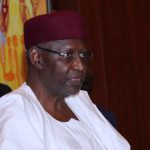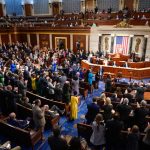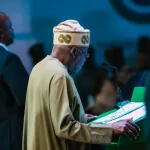According to a final report released on Tuesday on the 2019 Nigeria General elections by the situation room, a group of over 70 Civil Society Organisations (CSOs), the elections did not meet the credibility threshold based on the patterns of abuse of process and the consequent lack of integrity observed.
It said before the elections, it had issued a Threshold Document for a Credible Election “which stipulated minimum requirements for credible elections in 2019, drawing from local and international frameworks”.
“These standards were grouped under obligations to be fulfilled by the Independent National Electoral Commission (INEC), the political parties, the security agencies and other state institutions. From the lapses noted during the observation of the 2019 general elections, it is the conclusion of the Situation Room that the elections failed to meet the threshold for a credible election,” the report stated.
The situation room further highlighted a number of lapses which it said undermined the credibility of the elections and pose “serious questions about the future of elections in Nigeria and quality of democracy in Nigeria”
Speaking on INEC’s shortcomings the report read: “In the end, INEC operations fell short of its identified role and obligations in the Threshold Document. Logistical and operational challenges marred the credible conduct of the elections. The first sign of this flaw manifested with the shock and unexpected postponement of the elections in the early hours of the very day they were to begin, on Saturday, February 16, 2019.
“Postponing voting about six hours to the start of polls did not only expose an ill-prepared INEC, it also dampened the nationwide enthusiasm that had built up for the elections. It made it impossible for many who had traveled earlier to vote in their constituencies to make a second trip, worsening voter apathy.
“The collation of results, another major weakness of Nigerian elections, remained a concern throughout the elections, with observers reporting interference with the process, especially by political parties and security agencies, oftentimes, with the active participation of INEC officials.
Data in the voters’ register as well as results declared by INEC threw up several glaring discrepancies that have yet to be explained. There were differences between the number of accredited voters and the total number of votes cast in many polling units.
“A scrutiny of the registration numbers given by INEC reveals discrepancies between the total number of registered voters before the election and the total number of registered voters announced by INEC during the collation in 30 of Nigeria’s 36 states.
“Many of the lapses that were observed could have been taken care of if the Electoral Act amendment passed by the National Assembly had been signed into law and put into use.
“In spite of the postponement and assurances by INEC on its readiness, major shortcomings still undermined the conduct of the elections. There were significant delays to the start of voting due to challenges in deploying men and materials, and many cases where materials supplied to polling units were incomplete, perceived in some quarters as deliberate acts of vote suppression.
“Reports received by the Situation Room from its network of observers and partner organisations indicated that INEC officials and materials did not reach a significant number of polling stations across the country until about 11a.m. Voting ended late in many places, delaying collation and leaving room for malpractices.
“More so, the election day was characterised by localised incidents of voter intimidation, ballot box snatching and destruction, and general voter apathy as the national voter turnout rate dipped from 43.7% in 2015 to just 35.6 %.
“Situation Room acknowledges the efforts made by INEC toward building an accurate and inclusive register through its continuous voter registration, the public verification of the register and the issuance of voter cards. However, there were still identified challenges and tedious processes that proved to be a challenge for citizens seeking to register or collect their PVCs.”
Also speaking of Militarisation of the Elections, the Situation Room observers noted military involvement in the elections outside of the limits allowed by law.
The report read in part: “The Electoral Act specifically states that military involvement in the elections shall only be at the request of INEC, and only for the purpose of securing the distribution and delivery of election materials and protection of election officials.
“The Threshold Document called for a security deployment that was under the operational control of INEC in accordance with the provisions of the Electoral Act. In apparent contravention of this, troops were deployed nationwide during the elections, without any clear coordination with INEC.
“In Rivers state, the military posed significant challenges and obstructions to the performance of election duties by INEC officials. Situation Room received reports of incidents of partisan involvement in the elections by the military, particularly in Rivers state.”
The group however outlined 20 recommendations to improve Nigeria’s electoral system.
They recommended an urgent need for all stakeholders to put in place processes to tackle the lapses that have been identified.
Some recommendations were: “INEC should work together with civil society organisations to immediately commence the push for reforms in the electoral process, working closely with all critical stakeholders, to achieve lasting reforms to the Electoral process.
“The Electoral Act (Amendment) Bill passed by the National Assembly and declined by the President, should be re-introduced, passed by the National Assembly and transmitted to the President for assent.
“The Executive should commit to passing reforms proposed in the Electoral Act (Amendment) Bill and also champion a credible implementation of the recommendations in the 2008 Uwais Panel Report.
“The National Assembly should fast track the process of passing the Electoral Offenses Commission Bill. Attention should also be paid to providing a more credible framework for political finance issues – one that ensures transparency, accountability and fairness.
“In addition, amendments to the Electoral Act should include altering section 68, that gives unquestioning powers to the Returning Officer to declare results for an election even where such Returning Officer may have done so dubiously or as a result of coercion.
“Criminal infractions committed en-route to the declaration of results should also compel the review of results announced from such incident without requiring that remedial action be only possible through litigation at either the election Tribunal level or in the Courts.
“INEC should take steps to ensure the uniform and firm application of the electoral rules across all regions, stakeholders, and institutions during elections. In particular where the system makes enforcement difficult, INEC should take steps to at the least, call out erring institutions or individuals.
“A major risk factor in the 2019 elections was the behavior and impunity of the political class. Politicians should commit to respecting the rules of the election and under the current circumstance ensure that their followers do not act outside of the law with respect to election returns.”
The Situation Room further called for collaboration between election stakeholders and civil society organisations in Nigeria and the international community, to help bring to account persons who subvert the electoral process as a result of their actions and activities.
“Recent decision by the United State government announcing visa bans against persons infringing the electoral process and subverting the people’s vote is commendable. There is a need for a worldwide adoption of the principle of visa restrictions against such persons. Situation Room calls on other countries to follow the United States example,” the report stated.
























Leave a comment